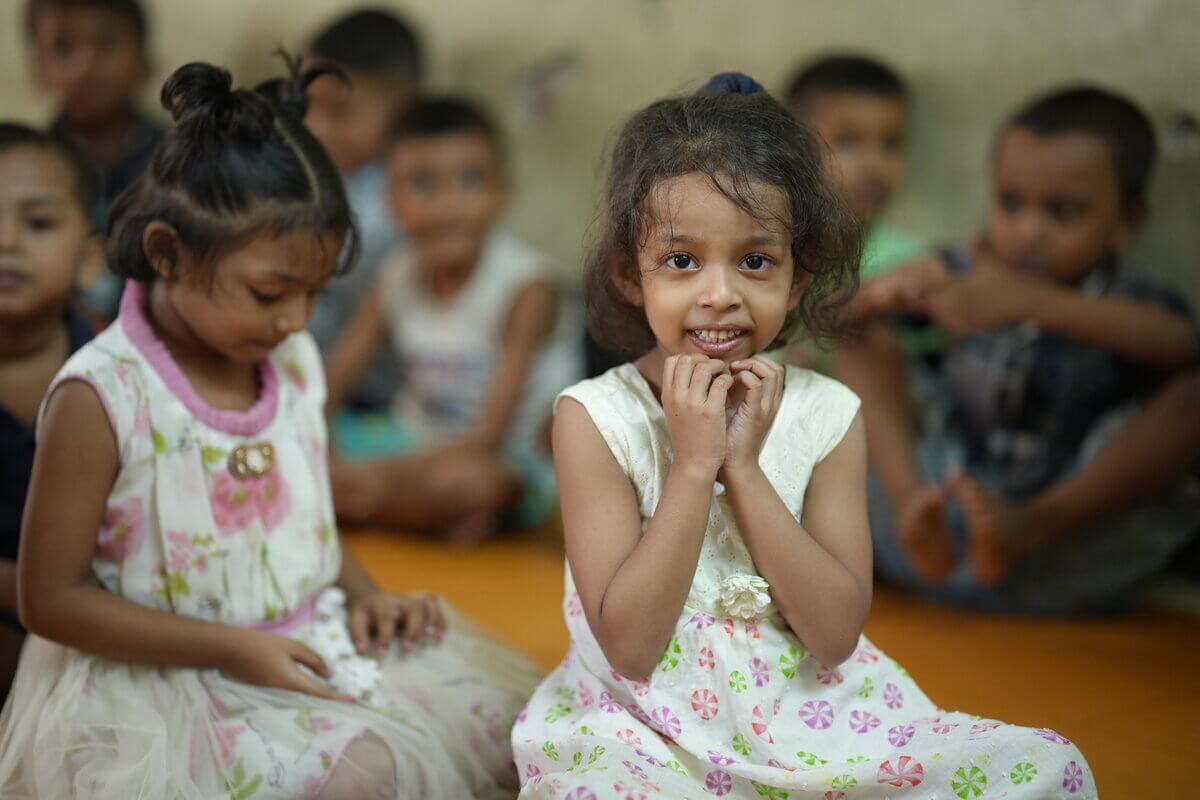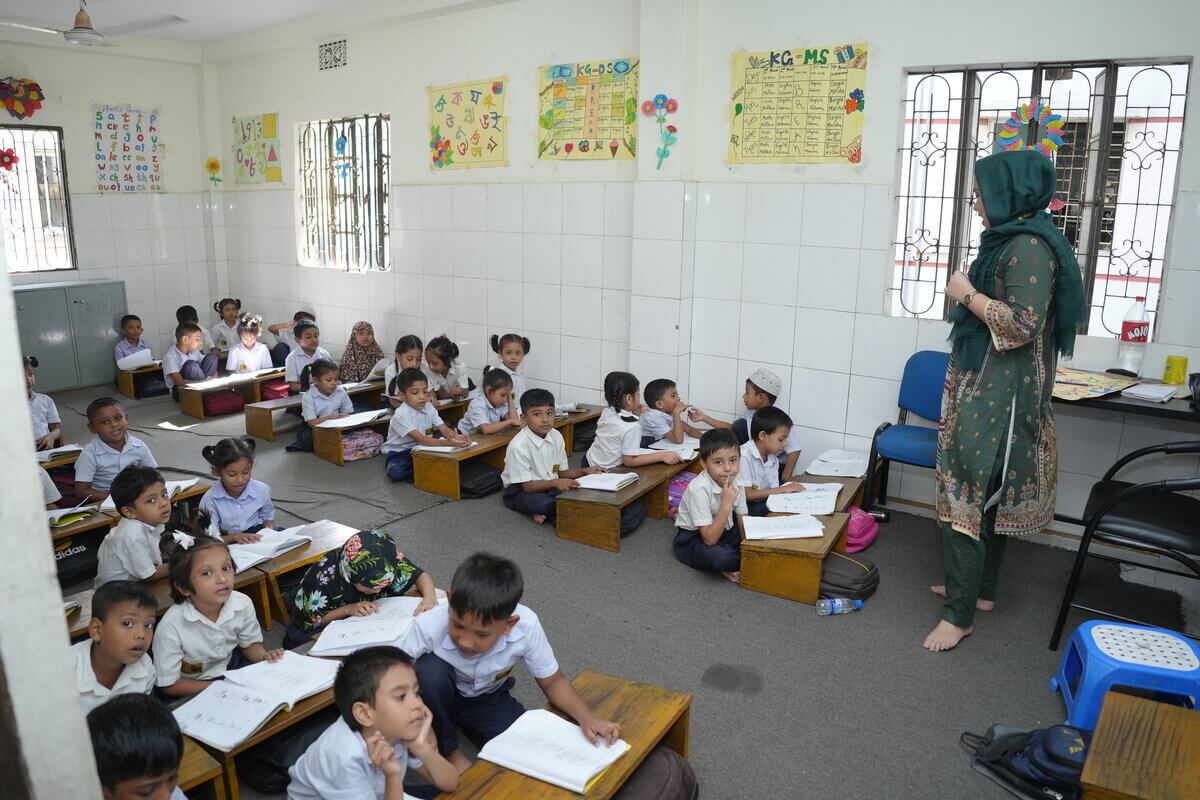The Education Scenario in Bangladesh and the Role of Child Sponsorship Programs

Education is a fundamental human right and a cornerstone for societal progress. In Bangladesh, despite significant advancements, the education system still grapples with profound disparities, particularly affecting children from underserved communities. Financial constraints remain one of the most formidable barriers preventing these children from accessing quality education, perpetuating a cycle of poverty that is hard to break.
Achievements and Challenges
Bangladesh has made remarkable strides in education over the past few decades. The introduction of free primary education, stipends for meritorious students, special stipends for female students, and midday meal programs have contributed to increased enrollment rates and gender parity at the primary level. However, while enrollment numbers are encouraging, the dropout rates and quality of education remain significant concerns, especially in rural and marginalized urban areas.
The dropout rate increases dramatically after the primary level. Secondary and higher education often remain out of reach for many children due to the associated costs, which go beyond tuition fees. The expenses for uniforms, books, stationery, transportation, and tutoring can be overwhelming for families already struggling to survive on meager incomes.
As per the reports, as of 2023, the literacy rate in Bangladesh stood at 76.8%.
The Financial Burden on Families
For many families in Bangladesh, education is viewed as a luxury rather than a necessity. When parents are struggling to provide basic needs such as food, shelter, and healthcare, education expenses are often deemed non-essential. This financial strain forces many children to enter the workforce at a young age to contribute to their family’s income, further hindering their educational prospects.

Societal Constraints
Societal constraints often hinder children’s access to education. Specially that of female children. Poverty-stricken families are often pressurised to send their children to work instead of school to earn some extra income. The female children are told to be married off to ease the burden of expense. Female children are often deprived of their right to education due to safety reasons as well. In Bangladesh, all these factors directly or indirectly impact children’s school participation.
The Way Forward
Addressing the educational challenges faced by underserved communities in Bangladesh requires a multi-faceted approach. Increasing government investment in education, particularly in rural and underserved urban areas, is crucial.
Public-private partnerships can be instrumental in mobilizing resources and expertise. The corporate sector can contribute through corporate social responsibility (CSR) initiatives that focus on education. International aid and development organizations can also play a significant role in funding and implementing educational programs.
Most importantly, there needs to be a collective societal effort to prioritize education and recognize its transformative power. Every child, regardless of their socio-economic background, deserves the opportunity to realize their full potential through education. By addressing the financial barriers and systemic challenges, Bangladesh can ensure a brighter future for all its children.
Child Sponsorship Programs
Child sponsorship programs are a unique way to engage community members to extend their support to children in need. Through their generosity, individuals can gift underprivileged children the chance of a better future. Through the child sponsorship programs, they can take responsibility for the child’s housing, education, nutrition, and overall well-being.
The contribution amounts may differ from program to program based on the extensivity of the benefits provided to children. In Bangladesh, many organisations are offering child sponsorship programs, for example- Shapla Foundation, Mastul Foundation, JAAGO Foundation, Action Aid, and World Vision.
The Impact of Sponsorship
The impact of child sponsorship extends far beyond the individual child. Sponsored children are more likely to uplift their families and communities. They become role models, inspiring others to value education and pursue their dreams. The ripple effect of education can transform entire communities, fostering a culture of learning and development.
Sponsorship also fosters a personal connection between the sponsor and the child. Sponsors receive regular updates on the child’s progress, creating a sense of involvement and commitment to the child’s educational journey. This personal touch enhances the overall impact of the program, making it a fulfilling experience for both the sponsor and the child.

JAAGO Foundation’s Sponsor A Child Program
JAAGO Foundation is a non-profit organization dedicated to providing quality education to children from disadvantaged backgrounds in Bangladesh. Since 2007, JAAGO Foundation has been operating schools all across Bangladesh and currently has 4500 underprivileged children enrolled at their school.
The sponsorship covers the costs of school fees, uniforms, books, and other necessary supplies, relieving the financial burden on the child’s family. This support ensures that children can attend school regularly, focus on their studies, and achieve their full potential. By sponsoring a child, you are not just providing education; you are giving them hope and a pathway to a brighter future.
To know more about the Sponsor A Child program or to sponsor a child, visit: https://jaago.com.bd/sponsor-a-child
FAQs
How much do I have to contribute?
Each sponsor has to contribute BDT 2500 or approximately $27 to Sponsor A Child.
How Frequently do I have to donate?
The donations are received on a monthly basis.
Do I have any say in the child selection process?
Yes, you can request the type of child you would like to sponsor or choose from the child profiles provided.
Is the process transparent?
Yes. Sponsors receive result cards, progress reports, etc., to evaluate their sponsored child’s performance.
Can I meet the child I am sponsoring?
Yes. Every sponsor can meet their sponsored child.
